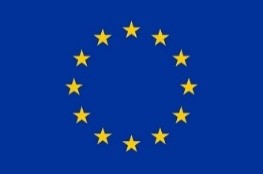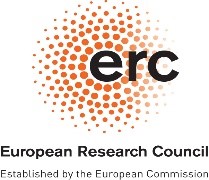Received:
2023-08-15 | Accepted:
2023-10-23 | Published:
2023-12-30
Title
Factors hampering the implementation of gender equality in the workplace
Abstract
The level of gender equality is different in every country and every culture, and, therefore, the history and conceptual framework for each country and culture are different. The article examines the causes of the inequality experienced by women in a general context, drawn from a qualitative approach that utilises a desktop analysis of secondary sources. Based on the advantages of the Gender and Development (GAD) approach explored in the study, such as its focus on women's needs, gender relations, and the state's role, it was determined that the GAD theory provided the most suitable framework for this study. The findings explore that there are varied causes of gender inequality divided into ideological factors, social system factors, economic factors, and political factors. Added to this are the causes of gender inequality in the workplace, which refers to human resource practices, job segregation, pay gap, lack of commitment, glass ceiling and escalator, and the lack of female role models. The study suggests that gender equality can bring employee satisfaction to the workplace and positive economic growth to society. The importance thereof in the achievement of the sustainable development goals (SDGs), especially sustainable development goal number 5 (SDG5) (gender equality and women empowerment), can thus not be disputed.
Keywords
gender, gender equality, gender mainstreaming, Sustainable Development Goal 5, qualitative analysis
JEL classifications
Z00
URI
http://jssidoi.org/ird/article/148
DOI
Pages
80-91
Funding
This is an open access issue and all published articles are licensed under a
Creative Commons Attribution 4.0 International License
References
Aguilar, L. 2004. Gender and Biodiversity. Convention on Biological Diversity. The International Union for Conservation of Nature (IUCN).
Search via ReFindit
Al-Jedaiah, M.N. 2020. Gender Inequality and Human Resource Management (HRM) Practices in Jordanian Commercial Banks. International Journal of Human Resource Studies, 10(1), 369-379. http://doi.org/10.5296/ijhrs.v10i1.16178
Search via ReFindit
Ansari, M.H. 2012. Gender Equity and Gender Equality. A brief overview of these issues and their application within NGOs. Council for International Development. Fact Sheet 6. May 2012. Retrieved from https://www.academia.edu/35427998/Gender_Equity_and_Gender_Equality
Search via ReFindit
Barbè, E. & Badell, D. 2023. Chasing gender equality norms: the robustness of sexual and reproductive health and rights. International Relations, 37(2), 274-297. http://doi.org/10.1177/00471178221136994
Search via ReFindit
Barriteau, V.E. 2000. Feminist Theory and Development: Implications for Policy, Research and Action. Chapter 4 in Theoretical Perspectives on Gender and Development, pp 161-178. In Parpart, J.L., Connelly, M.P. & Barriteau, V.E. (Ed.). International Development Research Centre: Canada. ISBN 0-88936-910-0
Search via ReFindit
Bosch, A. 2019. We, The Women. Collection of Research Papers. South African Board for People Practices Women’s Report 2019: Women and Politics. Anita Bosch (Ed.). Published by SABPP. Weltevredenpark, Gauteng.
Search via ReFindit
Branisa, B., Ziegler, M. & Klasen, S. 2009. The Institutional Basis of Gender Inequality: The Social Institutions and Gender Index (SIGI). Retrieved from http://hdl.handle.net/10419/57322
Search via ReFindit
Broner, C.K. 2013. Men, Women, & The Glass Escalator. Women on Business. Retrieved from https://www.womenonbusiness.com/men-women-the-glass-escalator/
Search via ReFindit
Budlender, D. 2001. Gender Equality and Social Dialogue in South Africa. Geneva: International Labour Office.
Search via ReFindit
Cardoso, M. O., Fernandes, G. A. A. L., Teixeira, M. A. C. 2023. Women Leaders and ESG Performance: Exploring Gender Equality in Global South Companies. Cosmopolitan Civil Societies. An Interdisciplinary Journal, 15(2), 64-83. https://doi.org/10.5130/ccs.v15.i2.8615
Search via ReFindit
Council of Europe (COE). Undated. What is gender mainstreaming? Retrieved from ,mainstreaming%20from%20the%201990's%20onwards https://www.coe.int/en/web/genderequality/gender-mainstreaming#:~:text=Gender%20mainstreaming%20is%20an%20approach
Search via ReFindit
Davis, S.L. 2019. Understanding and improving gender equity in conservation. Journal of the American Institute for Conservation, 58(4), 202-216. https://doi.org/10.1080/01971360.2019.1612723
Search via ReFindit
DeFranzo, S. 2023. What is the Difference between Qualitative Research and Quantitative Research? SnapSurveys. Retrieved from https://www.snapsurveys.com/blog/qualitative-vs-quantitative-research/
Search via ReFindit
Dilli, S. Carmichael, S.G. & Rijpma, A. 2019. Introducing the Historical Gender Equality Index. Feminist Economics, 25(1), 31-57. https://doi.org/10.1080/13545701.2018.1442582
Search via ReFindit
El-Arnaout, N., Chehab, R.F., Rafii, B., Alameddine, M. 2019. Gender equity in planning, development and management of human resources for health: a scoping review. Human Resource for Health, 17(52). https://doi.org/10.1186/s12960-019-0391-3
Search via ReFindit
Furner, J. 2004. Conceptual Analysis: A Method for Understanding Information as Evidence, and Evidence as Information. Archival Science, 4, 233-265. https://doi.org/10.1007/s10502-005-2594-8
Search via ReFindit
Gender Links. 2012. South Africa Local Government Gender Action Plan Manual. Gender Links. Johannesburg, South Africa. ISBN 978-0-620-40571-3
Search via ReFindit
Healey, J. (Ed). 2014. Gender Discrimination and Inequality. Issues in Society, Volume 374. The Spinney Press 2014, Australia.
Search via ReFindit
Human Rights Careers (HRC). 2020. 10 Reasons Why Gender Equality is Important. Retrieved from https://www.humanrightscareers.com/issues/10-reasons-why-gender-equality-is-important/
Search via ReFindit
James, L. 2019. HRD Programs and Women Executives: Are the Current HRD Initiatives Right for Women Executives? International Conference on Changing Contours of Women's Paid and Unpaid Work. Article Number 37, pages 149-151. Tata Institute of Social Sciences. Deonar, Mumbai.
Search via ReFindit
Kaushik, G. 2019. Women in Corporate: as Workers, Staff and Management Cadre. International Conference on Changing Contours of Women's Paid and Unpaid Work. Article Number 37, pages 103-107. Tata Institute of Social Sciences. Deonar, Mumbai.
Search via ReFindit
Lawal, F.A., Ayoade, O.E. & Taiwo, A.A. 2016. Promoting Gender Equality and Women’s Empowerment for Sustainable Development in Africa. 3rd International Conference on African Development Issues, Nigeria. ISSN:2449-075X. Covenant University Press
Search via ReFindit
Lenka, P. 2023. Philosophy of Sustainable Development: Understanding the Significance of Gender Equality in Business Organisations. Problemy Ekorozwoju – Problems of Sustainable Development, 18(2), 121-127. https://doi.org/10.35784/preko.3950
Search via ReFindit
Lewis, D. 2019. Neo-liberalism, gender and South African working women. South African Board for People Practices Women’s Report 2019: Women and Politics. Anita Bosch (Ed.). Published by SABPP. Weltevredenpark, Gauteng,
Search via ReFindit
Mamun-Ur-Rashid, M.D. 2018. Workplace Gender Discrimination Faced by Female Extension Workers in a Government Organisation in Southern Bangladesh. Proceedings of International Conference on Gender Equality through the Strategy of Gender Mainstreaming, 6-7 September 2018. Dr Sapna S. & Ms Swati Sharma (Ed.). Published by Presidency University, Bengaluru. ISBN 978-93-5311-724-5
Search via ReFindit
McLaren, H.J., Wong, K.R., Nguyen, K.N. & Mahamadachchi, K.N.D. 2020. Covid-19 and Women’s Triple Burden: Vignettes from Sri Lanka, Malaysia, Vietnam and Australia. Social Sciences, 9(87), 1-11. https://doi.org/10.3390/socsci9050087
Search via ReFindit
Merma-Molina, G., Urrea-Solano, M. & Hernandez-Amoros, M.J. 2023. The Integration of Gender Equality (SDG%) into University Teaching: The View from the Frontline. Innovative Higher Education, https://doi.org/10.1007/s10755-023-09668-3
Search via ReFindit
Mudgal, S. 2019. A Study of Women’s Lived Experiences of Leadership at the Workplace: A Feminist Study of Organizations. International Conference on Changing Contours of Women's Paid and Unpaid Work, Article Number 66, pp 251-255. Tata Institute of Social Sciences. Deonar, Mumbai.
Search via ReFindit
Muyoyeta. L. 2004. Women, Gender and Development. Published by Women for Change, Zambia. ISBN: 0 95351 367 X
Search via ReFindit
Onley, D. 2016. HR Key in Helping Employers Achieve Gender Equality. Society for Human Resource Management. SHRM Online. Retrieved from https://www.shrm.org/hr-today/news/hr-magazine/1116/pages/hr-key-in-helping-organizations-achieve-gender-equality.aspx
Search via ReFindit
Pavlou, C. 2019. Gender Inequality in the Workplace: A Lack of Women in Leadership. 5 March 2019. Retrieved from https://resources.workable.com/stories-and-insights/gender-inequality-in-the-workplace
Search via ReFindit
Pryzgoda, J. & Chrisler, J.C. 2000. Definitions of Gender and Sex: The Subtleties of Meaning. Sex Roles, 43(7/8), 553-569. https://doi.org/10.1023/A:1007123617636
Search via ReFindit
Rayomo, A.D. 2018. The top 3 factors that boost gender equality in the workplace. www.techrepublic.com
Search via ReFindit
Reeves, H. & Baden, S. 2000. Gender and Development: Concepts and Definitions. Institute of Development Studies. United Kingdom. ISBN 1 85864 381 3.
Search via ReFindit
Rippenaar-Joseph, T. 2009. Mainstreaming Women in Development? A Gender Analysis of The United Nations Development Programme In South Africa. (Doctoral Thesis). Stellenbosch: Stellenbosch University.
Search via ReFindit
Rithcie, H. & Roser, M. 2019. Gender Ratio. Our World in Data. Retrieved from https://ourworldindata.org/gender-ratio
Search via ReFindit
Stamarski, C.S. & Son-Hing, L.S. 2015. Gender Inequalities in the Workplace: The Effects of Organisational Structures, Processes, Practices, and Decision-Makers’ Sexism. Frontiers in Psychology, 6, Article 1400. https://doi.org/10.3389/fpsyg.2015.01400
Search via ReFindit
Swedish International Development Cooperation Agency (SIDA). 2016. Hot issue: Gender Equality and Gender Equity. Gender Toolbox.
Search via ReFindit
Swedish International Development Cooperation Agency, November 2016. Retrieved from https://www.sida.se/en/publications/hot-issue-gender-equality-and-gender-equity
Search via ReFindit
Thorpe, J.F. 1990. Gender-based Harassment and the Hostile Work Environment. Duke Law Journal, 1990, 1361-1397. https://doi.org/10.2307/1372836
Search via ReFindit
United Nations (UN). 2020a. Gender Equality. The unfinished business of our time. Retrieved from https://www.un.org/en/sections/issues-depth/gender-equality/
Search via ReFindit
United Nations (UN). 2020b. Gender Equality: Why it Matters. United Nations Sustainable Development Goals. Retrieved from https://www.un.org/sustainabledevelopment/wp-content/uploads/2016/08/5_Why-It-Matters-2020.pdf
Search via ReFindit
United Nations Development Programme (UNDP). 2013. Humanity Divided: Confronting Inequality in Developing Countries. United Nations Development Programme. New York, USA.
Search via ReFindit
United Nations Educational, Scientific and Cultural Organization (UNESCO). 2003. UNESCO’s Gender Mainstreaming Implementation Framework (GMIF) for 2002-2007.
Search via ReFindit
United Nations International Children's Emergency Fund (UNICEF). 2011. Promoting Gender Equality: An Equity-Focused Approach to Programming. UNICEF. New York. Retrieved from https://www.unicef.org/gender/files/Overarching_Layout_Web.pdf
Search via ReFindit
United Nations Population Fund (UNPF). 2005. Frequently asked questions about gender equality. Retrieved from ,in%20all%20spheres%20of%20life https://www.unfpa.org/resources/frequently-asked-questions-about-gender-equality#:~:text=Why%20is%20gender%20equality%20important
Search via ReFindit
Vyas-Doorgapersad, S. 2017. Gender mainstreaming in local economic development processes: a South African perspective. International Journal of Economics and Finance Studies, 9 (2), 167-180.
Search via ReFindit
Vyas-Doorgapersad, S. 2018. Gender Considerations in Leadership. Internal Handbook for the Public Leadership and Governance Programme. Johannesburg: University of Johannesburg.
Search via ReFindit
Vyas-Doorgapersad. S. 2016. Gender mainstreaming in policy processes: A South African perspective. International Journal of Business and Management Studies, 8(2), 138-151.
Search via ReFindit
Walliman, N. 2011. Research Methods – The basics. Routledge, Taylor & Francis Group. New York, 2011. https://doi.org/10.4324/9780203836071
Search via ReFindit
Wilson, J. 2019. 5 Top Issues Fuelling Gender Inequality in the Workplace. Retrieved from https://www.asyousow.org/blog/gender-equality-workplace-issues
Search via ReFindit
Wirth, L. 2001. Breaking through the Glass Ceiling. Women in Management. International Labour Organisation (ILO). International Labour Office, Geneva. ISBN 92-2-110845-7
Search via ReFindit












 RSS 1.0
RSS 1.0